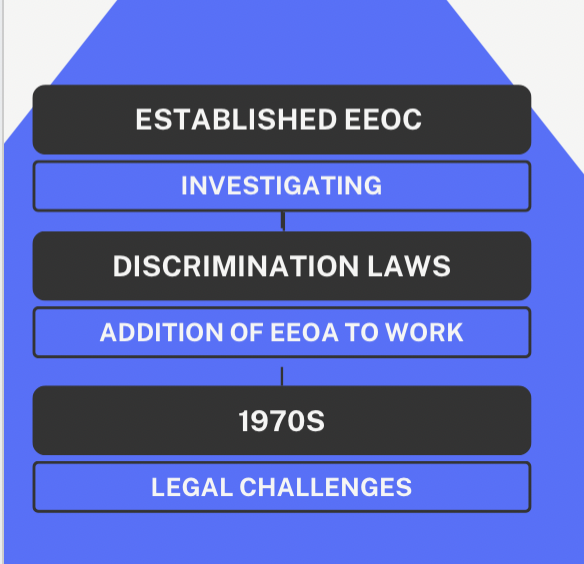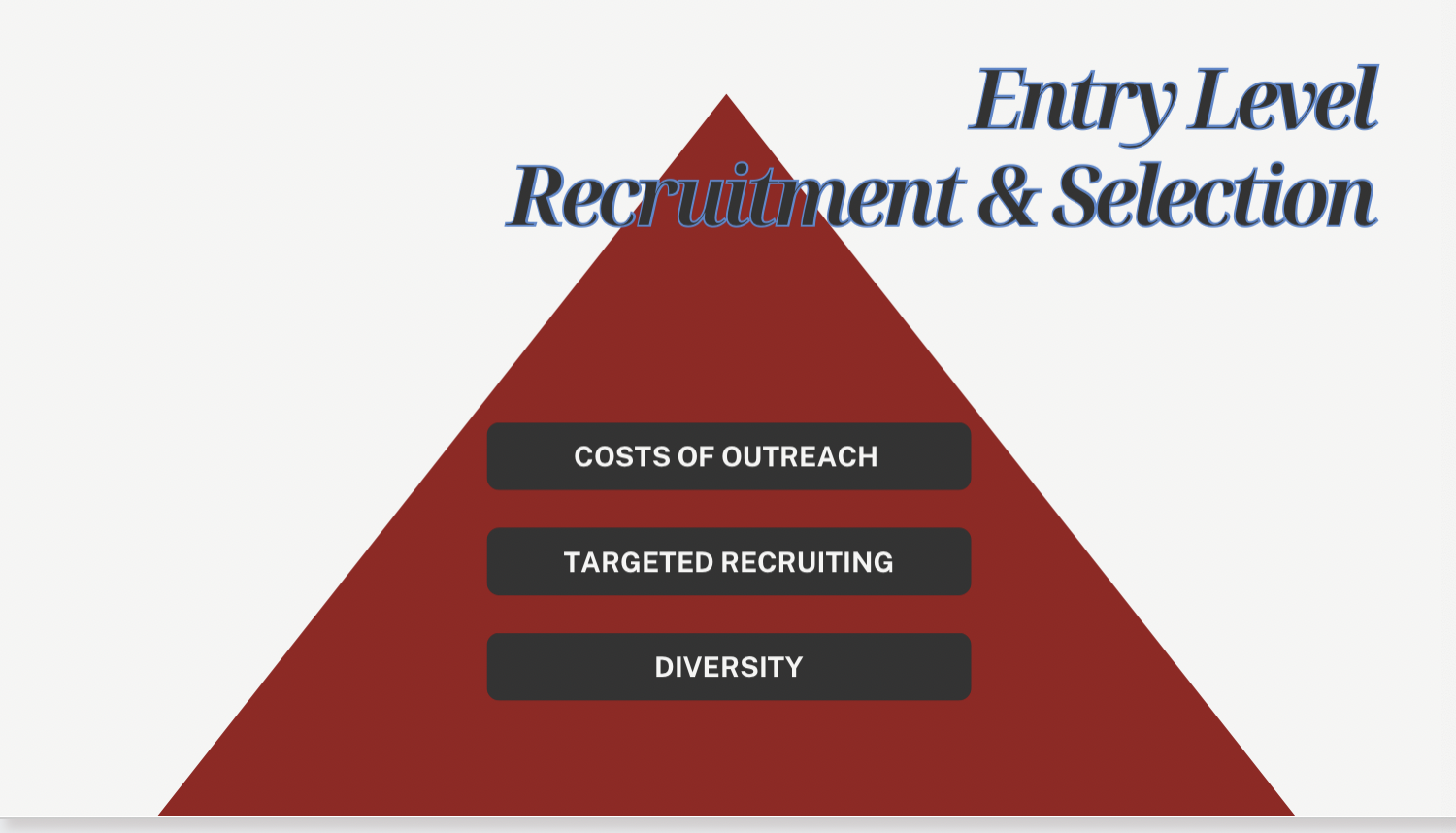Police Recruitment and Selection
Outline
Explain the importance of the recruiting and selecting officers in a cultural context
Discuss the laws, regulations and strategies police organizations have established to recruit and select
Describe 5 areas police organizations test to screen applicants
Public perception of law enforcement impacts effective recruiting of new officers?
can be true or false depends on who you ask
Importance of Recruitment and Selection
Changing society had impacted law enforcement agencies to build a cadre of personnel capable of dealing with the variety of complexities these officers will face on a day to day basis
Hiring officers who have the education, social skills, and characteristics that accurately reflect the communities they service can ass trust and cooperation with the police.
Because of this recruitment and selecting personnel is one of the most important aspects for police departments.
Education and the field are merging
less likely to use unnecessary force if properly emotionally and mentally equipped
textbook + field = success
Issues within R&S
Poor recruitment and selection leads to critical issues within and outside the department
Generational Issues
Research implementations for R&S
Job satisfaction analysis
Reduced turnover by giving previews of work to candidates
Anti-Discrimination Legislation
Equal Employment Opportunity
Affirmative Action
Civil Rights Act, Title 7
Age Discrimination/Disabilities
Equal Employment Opportunity Act (EEOA)
Historically, U.S. employers, have been free to establish their own criteria for hiring, promoting, and denying employment, even with the 1st, 5th, and 14th amendments
prohibiting deprivation of employment rights without due process of law.

Civil rights Act, Tittle VII (7)
1964
Began to take EE rights seriously
Basis
Discrimination against immutable characteristics were basis of violations of Title VII
OPM
Office of Personnel Management has included a prohibition against discrimination of sexual orientation, martial status, and political affiliation.
Affirmative Action
Prominence
Alone with EEOA and Civil Rights, affirmative action gained prominence.
These programs were built to prevent discrimination in hiring and promotional practices
Consent Decree
Employers have now implemented programs, if they do not they can face charges and lose federal financial support.
Consent Decree is designed to achieve balance in terms of race, ethnicity, and gender in the workforce.
Civil Rights Act of 1964
Title 7
Prohibits job discrimination based on specific characteristics that are determined at birth and other characteristics that applicants should not be expected to alter
It is illegal to discriminate against individuals on their birthplace, ancestry, culture, and linguistic characteristics.
Under this, employers are required to reasonably accommodate the religious beliefs of an employee.
This also goes for pregnant employees/ prospective employees.
Age & Disability
Age
An age limit has been stablished for these agencies as per normal operation of agency
Example: Up to age 35/40 for applicants to apply
Disability
Enacted in 1990
ADA makes it illegal to discriminate against persons with certain categories of disabilities.
A qualified individual with a disability, the employer may be required to provide a reasonable accommodation for the employee with a disability.

Testing of Candidates
Status Tests
Changeable factors:
U.S. Citizenship
Drivers License
Residency
Military?
Educational Level
Age
Physical tests
Physical agility tests
Height & Weight tests
Vision
Hearing
Medical examinations
Mental Test
Measures intelligence
Knowledge
Aptitude
Psychological fitness
Integrity tests
Polygraphs
Personality test
Testing of Candidates
Tests of Morality
tests include background investigations, drug tests, and polygraphs
Background includes:
Public records
Legal records
Personal Information
Communication Tests
Ability to communicate is essential for police departments
An oral board or oral interview is a required evaluation for statements, accuracy, and comprehensiveness
Conclusion
Recruitment & Selection of entry officers are critical to the success of police agencies.
The selection process for entry-level involves many steps to ensure that the most qualified applicants who are seriously interested in a career in policing for the training academy
 Knowt
Knowt